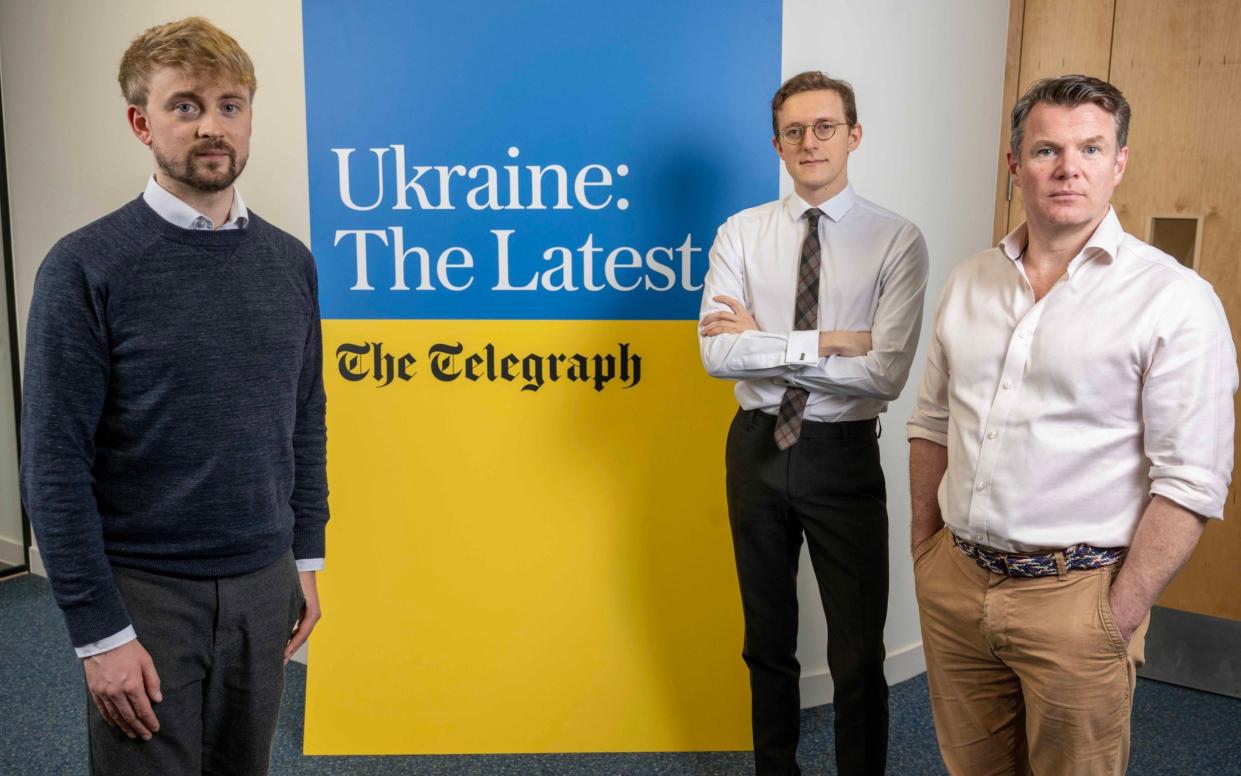Ukraine: The Latest - the Telegraph's most popular ever podcast

War in Ukraine is reshaping our world. Every weekday the Telegraph's top journalists analyse the invasion from all angles – military, humanitarian, political, economic, historical – and tell you what you need to know to stay updated.
With over 30 million downloads, our Ukraine: The Latest podcast is your go-to source for all the latest analysis, live reaction and correspondents reporting on the ground. We have been broadcasting ever since the full-scale invasion began. Since then, it has become the paper’s most popular ever podcast, nominated for many industry awards.
Ukraine: The Latest's regular contributors are:
David Knowles
David is Head of Social Media at the Telegraph where he has worked for almost two years. Previously he worked for the World Economic Forum in Geneva. He speaks French.
Dominic Nicholls
Dom is Associate Editor (Defence) at the Telegraph having joined in 2018. He previously served for 23 years in the British Army, in tank and helicopter units. He had operational deployments in Iraq, Afghanistan and Northern Ireland.
Francis Dearnley
Francis is Assistant Comment Editor at the Telegraph. Prior to working as a journalist, he was Chief of Staff to the Chair of the Prime Minister's Policy Board at the Houses of Parliament in London. He studied History at Cambridge University and on the podcast explores how the past shines a light on the latest diplomatic, political, and strategic developments.
They are also regularly joined by the Telegraph's foreign correspondents around the world, including Joe Barnes (Brussels), Sophia Yan (China), Nataliya Vasilyeva (Russia), Roland Oliphant (Senior Reporter) and Colin Freeman (Reporter). In London, Venetia Rainey (Weekend Foreign Editor), Katie O'Neill (Assistant Foreign Editor), and Verity Bowman (News Reporter) also frequently appear to offer updates.
You can watch our special episode reflecting on the one-year anniversary of the invasion here:
Listen to Ukraine: the Latest, The Telegraph's daily podcast, using the audio player at the top of this article or on Apple Podcasts, Spotify, or your favourite podcast app.

 Yahoo News
Yahoo News 
